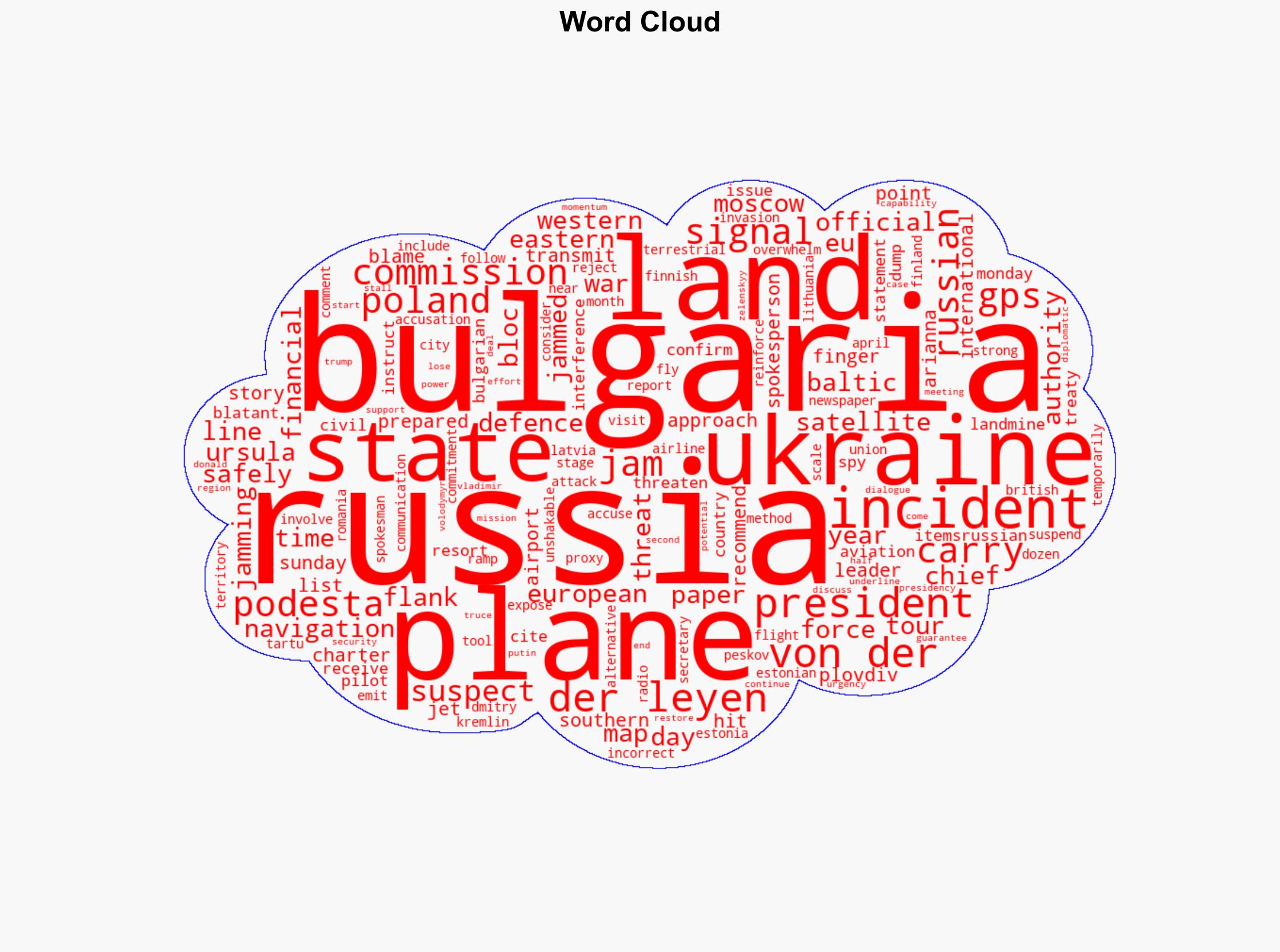Russia suspected of jamming navigation on EU leaders plane above Bulgaria – Al Jazeera English
Published on: 2025-09-01
Intelligence Report: Russia suspected of jamming navigation on EU leaders plane above Bulgaria – Al Jazeera English
1. BLUF (Bottom Line Up Front)
The most supported hypothesis is that Russia was involved in the GPS jamming incident affecting the plane carrying Ursula von der Leyen. This conclusion is based on historical patterns of similar incidents and geopolitical tensions. Confidence in this assessment is moderate due to the lack of direct evidence. Recommended action includes enhancing regional air navigation security and diplomatic engagement with Russia to address potential escalations.
2. Competing Hypotheses
1. **Hypothesis A**: Russia deliberately jammed the GPS signals of the plane carrying Ursula von der Leyen as a demonstration of power and to disrupt EU operations.
– **Supporting Evidence**: Historical precedent of Russian involvement in similar incidents; geopolitical tensions between Russia and the EU; recent Russian threats towards EU states.
2. **Hypothesis B**: The GPS jamming was a result of technical malfunction or interference from non-state actors, unrelated to Russian state actions.
– **Supporting Evidence**: Lack of direct evidence linking Russia to the incident; possibility of technical errors or independent actors with jamming capabilities.
Using the Analysis of Competing Hypotheses (ACH) 2.0, Hypothesis A is better supported due to the pattern of Russian behavior and geopolitical context, despite the absence of direct evidence.
3. Key Assumptions and Red Flags
– **Assumptions**: Assumes Russia has both the capability and intent to conduct such operations; assumes geopolitical tensions are a sufficient motivator.
– **Red Flags**: Lack of direct evidence tying Russia to the incident; reliance on historical patterns may introduce confirmation bias.
– **Blind Spots**: Potential underestimation of non-state actor capabilities; overlooking alternative technical explanations.
4. Implications and Strategic Risks
– **Geopolitical Risks**: Escalation of tensions between Russia and the EU, potentially leading to increased military posturing or sanctions.
– **Cybersecurity Risks**: Highlighted vulnerability in air navigation systems, necessitating enhanced cybersecurity measures.
– **Psychological Impact**: Potential erosion of confidence in EU leaders’ safety and regional stability.
– **Cascading Threats**: Increased likelihood of similar incidents in the future, potentially targeting other EU leaders or critical infrastructure.
5. Recommendations and Outlook
- Enhance air navigation security protocols across the EU, focusing on GPS jamming countermeasures.
- Engage in diplomatic dialogue with Russia to address and de-escalate tensions.
- Conduct joint EU investigations to gather more evidence and improve attribution capabilities.
- Scenario Projections:
- **Best Case**: Successful diplomatic engagement reduces tensions and prevents future incidents.
- **Worst Case**: Continued escalation leads to broader geopolitical conflict and economic sanctions.
- **Most Likely**: Ongoing low-level incidents with periodic diplomatic engagements and sanctions.
6. Key Individuals and Entities
– Ursula von der Leyen
– Dmitry Peskov
– Arianna Podesta
7. Thematic Tags
national security threats, cybersecurity, counter-terrorism, regional focus




